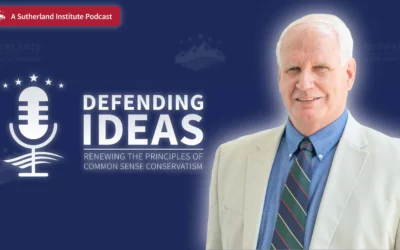
Written by Rick B. Larsen and W. Brad Wilcox
March 4, 2024
Originally published in the Deseret News.
When it comes to realizing the nation’s most important ideals — from the American dream to the “pursuit of happiness” — Utah has a well-deserved reputation for leading out. The state has a pioneering record when it comes to maximizing the odds that poor kids make it in America and that its citizenry is happy. And the research tells us that the fact that no state in America has stronger families than Utah is a big reason why this state does so well on so many national rankings.
In other words, the “Utah family miracle” — with the state ranking No. 1 for the share of kids raised in married families — helps to explain so much of what makes the Beehive State great.
This is why Utah Gov. Spencer Cox and the state legislature have been prioritizing family policy of late, including in the 2024 legislative session, which ended last week. Throughout the session, Utah policymakers advanced policies designed to reinforce marriage and strong and stable families across the state. These policies reflect their data-driven understanding of what is required to advance the welfare of children and the common good.
Utah’s approach is not without controversy. Three law professors — Eleanor Brown, June Carbone and Naomi Cahn — recently criticized the promotion of marriage as an effective means of alleviating or preventing poverty, citing abusive and neglectful marriages as their primary evidence. Instead, they argue that policies such as an expanded and more muscular child tax credit is “far more effective than efforts to put two married parents in every household.”
We agree that a stronger child tax credit is good for families and expands financial resources available to children. However, simply giving more money to families without concurrent policy efforts to promote marriage as a positive cultural norm suggests a lack of understanding of the broad range of financial, social and emotional benefits that strong families, bound together in marriage, create for parents and children alike, including better mental and physical health, improved education outcomes, higher levels of social capital and self-reported happiness. Brad Wilcox’s new book, “Get Married,” tells us that no group of men and women are as happy as married moms and dads in America today, and no group of kids are more likely to steer clear of prison and toward college graduation than boys and girls born and raised in an intact family.
What’s more: Marriage is a much more reliable guarantee of financial security and freedom from poverty for families than a few thousand dollars from Uncle Sam. And a clear recognition of what strong families contribute to society is reflected in Utah policymaking during the 2024 legislative session.
For example, lawmakers enacted legislation — informed by scholarship from the Sutherland Institute and the American Enterprise Institute — encouraging public school instruction that explains the outcomes generated by the success sequence. The success sequence is a three-step process for avoiding poverty — of which marrying before having children is a significant part — with a success rate of more than 90% regardless of race, gender or socioeconomic background. Policymakers and voters recognize that in order for the “Utah Family Miracle” — the state’s economic prosperity, fueled by strong family formation — to continue, children need to be equipped with the facts and the agency regarding their future economic prospects. This should include the fact that if they don’t forge a strong marriage and family, they will forego some of life’s most meaningful and financially rewarding achievements.
In another example, the Utah Legislature, with unanimous support in both the House and Senate, enacted a bill that formalizes the Utah Office of Families. One of the purposes of this office will be to gather data from state agencies that can help policymakers and the public better understand the impact that family structure has on critical public health, education and economic outcomes. The information coming out from this office will empirically underline the ways in which key family factors — from involved dads to families with married parents — foster better outcomes for children, men and women across the state.
Policies like these are long-term and forward-thinking, and they reflect the understanding that family is the foundation of civilization. As the family goes, so goes the state and, indeed, the nation.
Utah policymakers and voters now should look to the next steps toward maintaining a strong family culture in the state. These could include: (1) ensuring that the success sequence finds its proper place in public school classrooms, (2) applying the lessons that come from reports on the impacts of family structure produced from data gathered by the Utah Office of Families, and (3) exploring how education, workforce, welfare and health programs and policies might be reformed to help all Utahns access and achieve the milestones of the success sequence.
Utahns should be proud that they’ve built a culture that elevates and promotes the norm of strong families, more than any other state in the nation. But as any successful couple will tell you after decades of marriage, building a strong family means ongoing investments of resources and consistent, diligent effort. The same will be required of Utah lawmakers and citizens to keep the Utah family miracle strong.
More Insights
Read More
Protecting property rights against government overreach
While governments can continue to regulate land use, these regulations and fees must be justified by a government interest and proportional to the effect of the development’s impact on that interest.
Do we need to care about the Utah State Board of Education?
For any Utah voters who also feel like K-12 public education is headed in the wrong direction, learning about the candidates running for a seat on the Utah State Board of Education (USBE) is a wise choice this election season.
Defending education choice the right way
Education choice has exploded in popularity across the nation in recent years. So why does it remain a contentious point of debate in some parts of the country?


